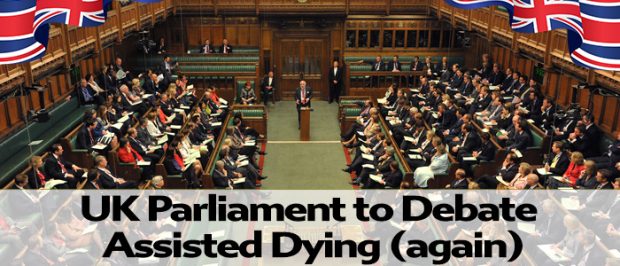October 6, 2024
A Good Death will Remain Out of Reach in the UK
A Bit of Background
For the past 13 years, the UK has relied on ‘the Starmer guidelines‘ for their legal determinations on assisted suicide.
Back in 2010, when he was the director of Public Prosecutions (long before his recent Prime Minister-ship), Keir Starmer attempted to clarify the law around assisted suicide.
Back then, the public discourse was concerned with the ability of friends and family to take their loved ones to Dignitas.
The case of Debbie Purdy (a Dignitas client) was instrumental in these new guidelines.
New Plans
Fast-forward to 2024 and it is Keir Starmer’s labour government which will oversee the forthcoming parliamentary vote on the issue.
Labour MP, Kim Leadbeater, has won a ballot that allows her to introduce a bill on the topic of her choice on 16 October. Assisted dying is her selection.
A free vote (eg. conscience vote) is in the offing.
What type of law?
Make no mistake, what is at stake in the UK in 2024 is not a Swiss-style human rights law.
Nor is a Dutch-style ‘completed life’ law (this bill is currently before the Dutch parliament and aims to de-medicalise end of life rights) on the table.
Instead, the British are going down the familiar path of countries like the US, Australia, New Zealand and Canada.
Reuters reports that ‘The law is expected to allow mentally competent, terminally ill adults in England and Wales with six months or less left to live to choose whether to end their lives, and allow medics to help them.’
Who will benefit?
Clearly, to use any new law, it is highly likely that one will need to be terminally ill and have less than six months to live. The only person able to assist with be a doctor.
Permission will need to be sought and obtained from several health professionals.
Who is left behind?
For those who are not demonstrably terminally ill, nothing will change.
For elderly people who have lots of niggling things (eg. the poly-pathologies of old age), the bill will be of no use as while they may be old, and while they may have a poor overall quality of life, they are not terminally ill.
Nor will people with dementia benefit: despite the fact that almost 87,000 new cases are diagnosed each year in England.
And what about elderly couples who want to go together? They, too, will not be able to be helped (unless they are both terminally ill at the same time but the chances of that are pretty small).
Nor will anyone with psychiatric suffering be able to be helped. That, too, is not a terminal illness.
So, for many within our community who are experiencing incredible suffering but whom are not terminally ill, the Leadbeater Bill has little to offer.
But this is what you get when you follow the medical model!
Who will be in charge?
Medical model laws enshrine the medical profession as the gate-keepers of the good death, despite the fact that we are all going to die, whether we are sick or not.
Medical model laws are the base level of what a civilised society requires and deserves.
Quo Vardis
Each new country that seeks to legislate on this issue has the option of introducing genuine reform.
Few choose to take it, the British included.
We are all the poorer for the medicalisation of an area of life which is so un-medical in character.
The universality of death makes this a matter than none of us can or should ignore.
It is Exit’s long-held contention that only a human rights-based model of law (like in Switzerland) – which is not based on medical criteria of illness – has the ability to ensure that more than a select few within the community can be helped.

Exit